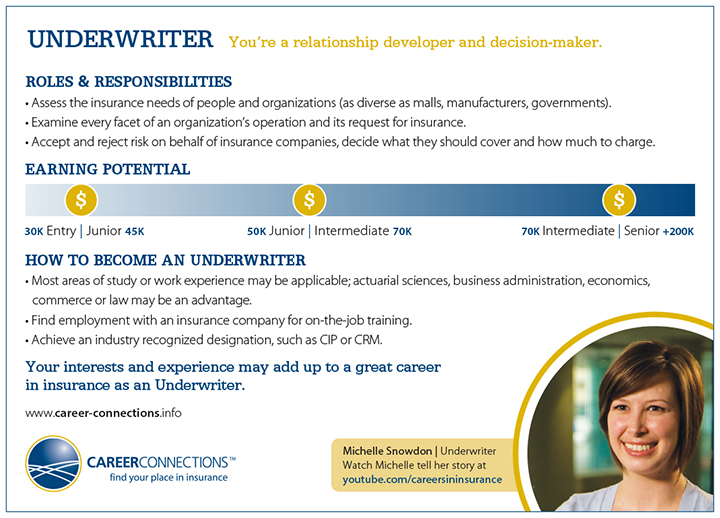Is this career for me?
Do the following statements accurately describe you?
- You are currently enrolled in a mathematics, computer science, finance or business program at the post secondary level
- Your current studies focus on communication skills, problem-solving and analysis.
- You have aptitude in math and are comfortable using a variety of computer applications
- You have excellent verbal and written communication skills
- You have strong analytical and judgment skills and pay attention to detail
- You are a creative thinker with a natural curiosity
- You have strong organizational and time management skills
- You have had a job or volunteer position that required communication, organization and time-management skills such as a web programmer
If you answered yes to these statements, then a career as an underwriter might be the perfect fit!
How do I get there?
A combination of the following qualifications would be helpful in gaining employment as an Underwriter in the property and casualty insurance industry.
College/University
For a greater advantage, and the highest placement value, successful completion of a business or insurance program is strongly recommended. Learn more.
Applicants with a background or degree in actuarial sciences would also be highly regarded. A college diploma or university degree in business administration, economics, or commerce is recommended for this role.
Licensing
Some organizations may require an applicant to possess a life, broker or agent license. Learn more.
Professional Qualifications
Most underwriters are expected to begin working towards their Chartered Insurance Professional (CIP) designation after accepting this position. Most, if not all, insurance organizations support their staff's continuing and professional education by providing financial support and time off for studying/writing exams. Learn more.









